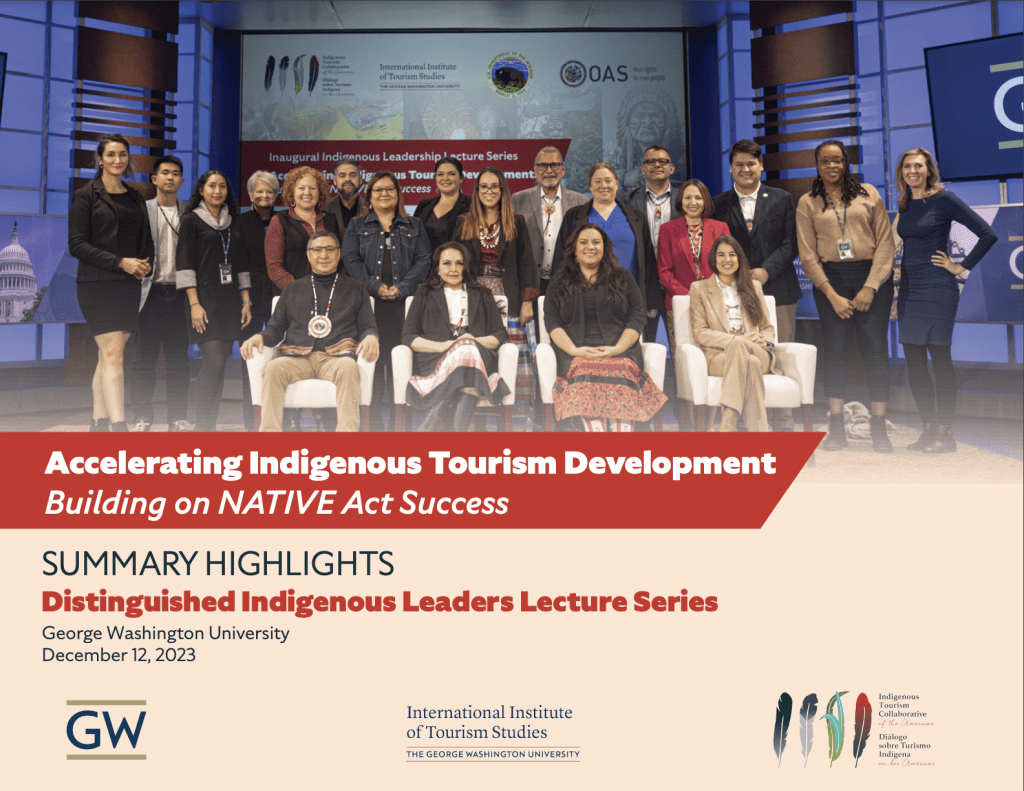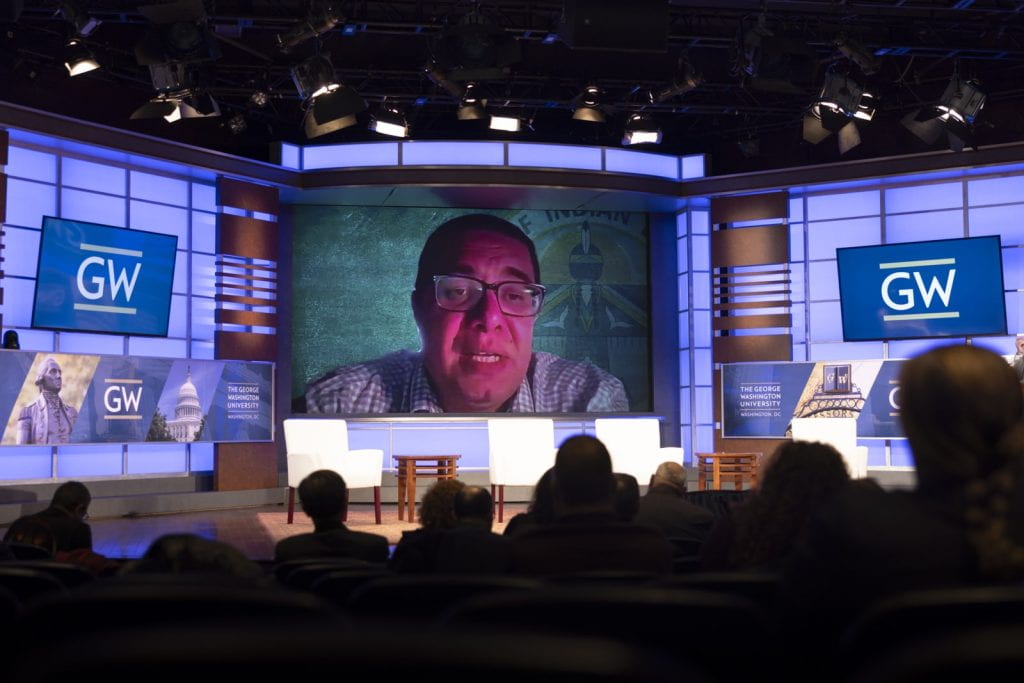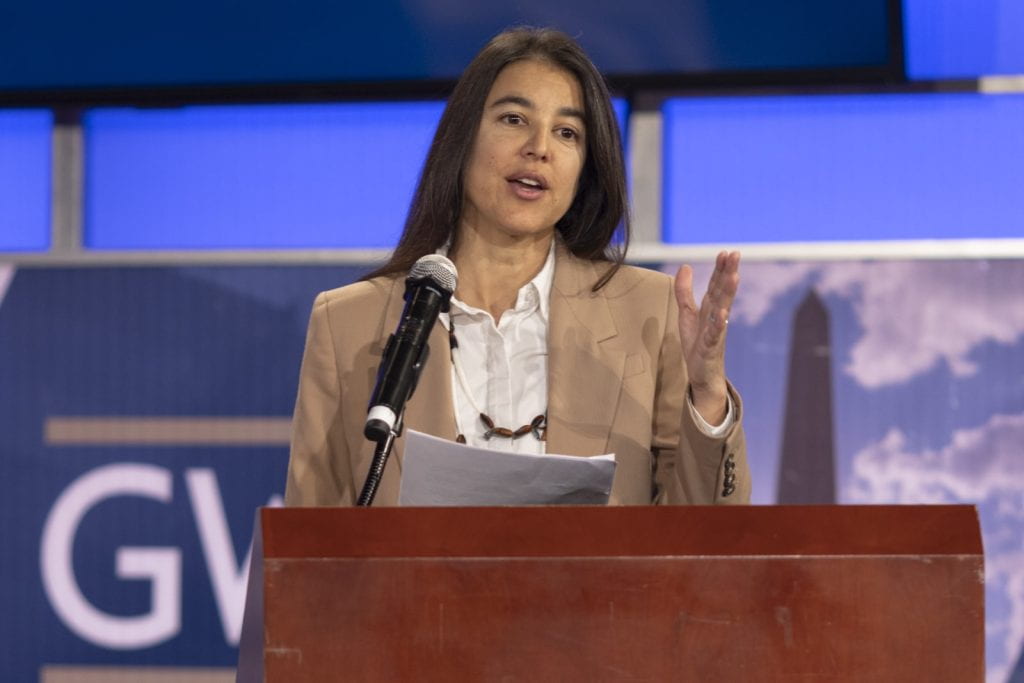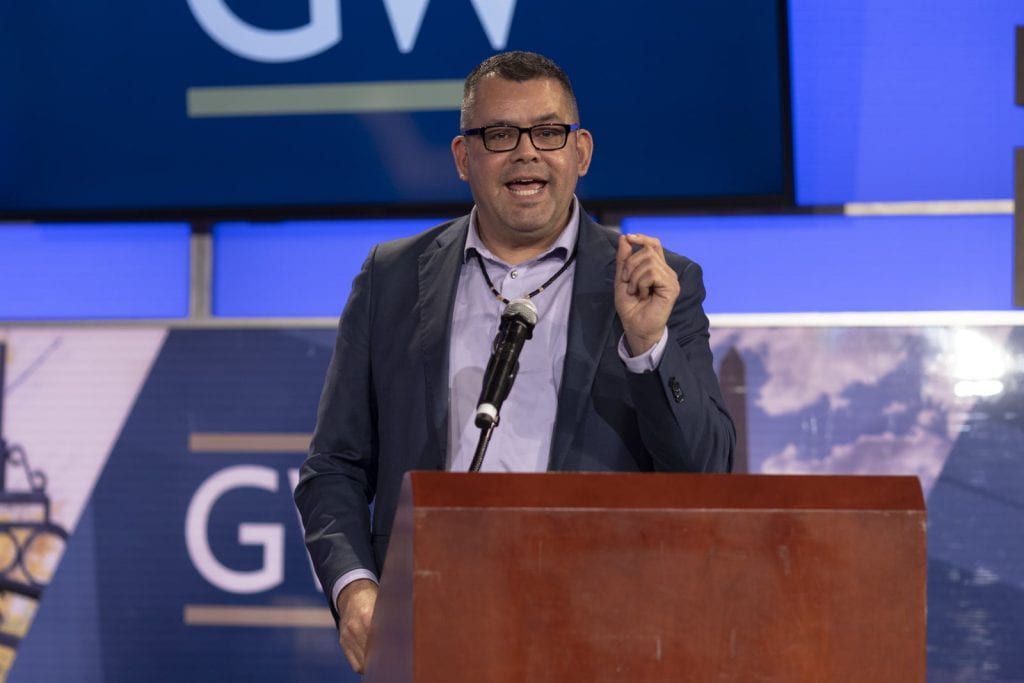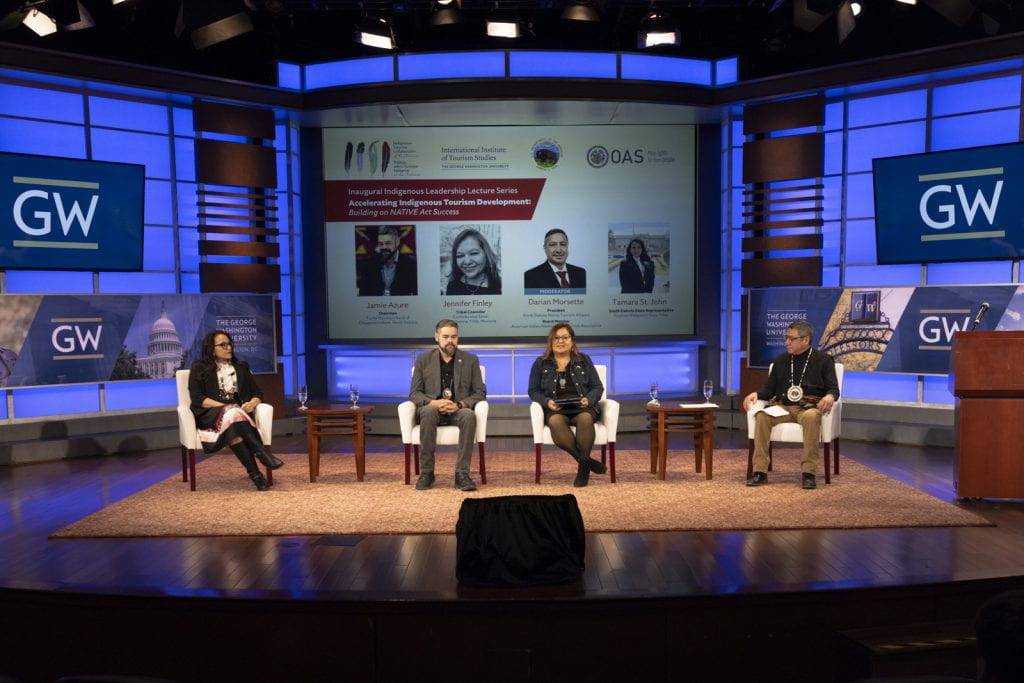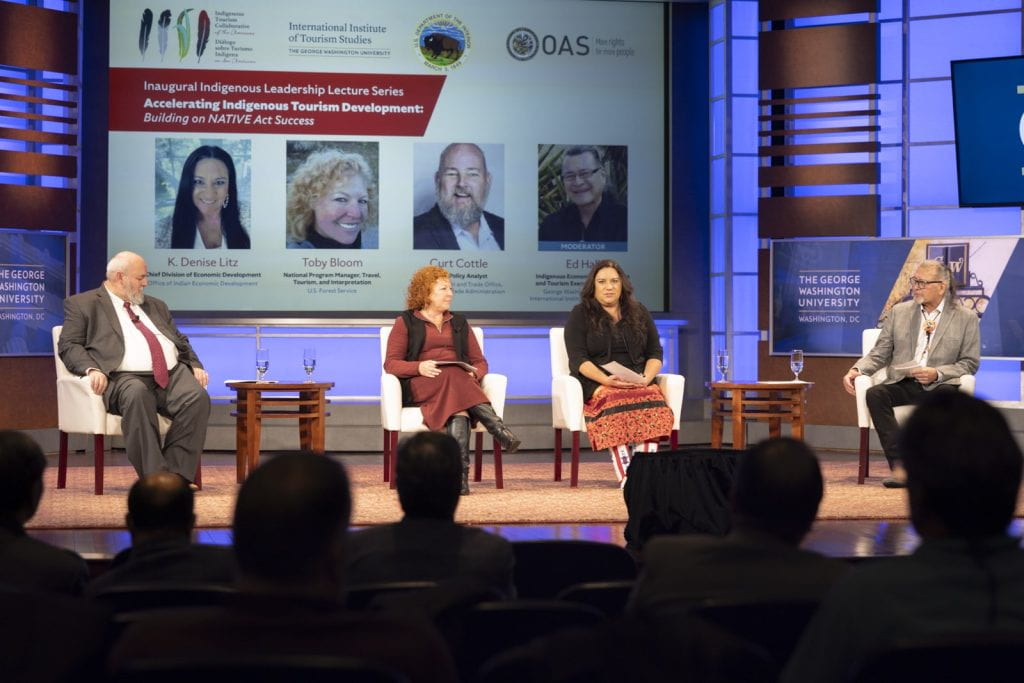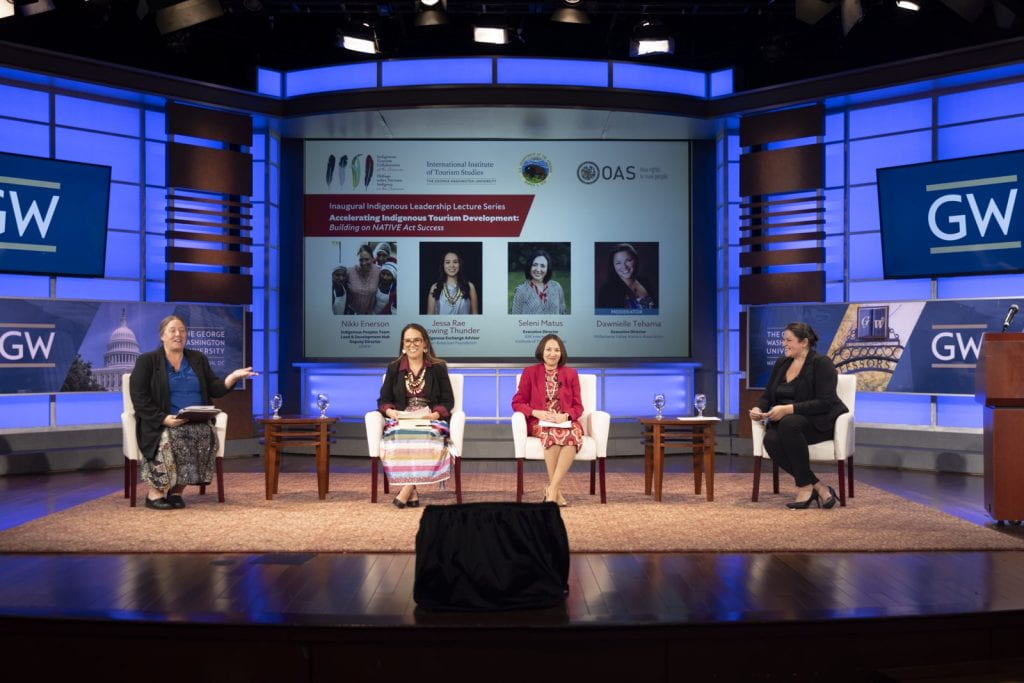In celebration of the International Day of the World's Indigenous Peoples, the Indigenous Tourism Collaborative of the Americas (ITCA) hosted a webinar on August 8, 2024: Indigenous Driven Tourism: Putting Colonization in the Rear View through Autonomy and Partnership. The goal was to explore the question posed at a recent ITCA Quarterly Meeting by Javier Leifman of the Mapuche Tourism Society of Chile: "How do we define Indigenous-driven tourism?"
The webinar was moderated by Edward Hall, Indigenous Economic Development and Tourism Executive in Residence at the International Institute of Tourism Studies. He was joined by speakers Dr. Michael Yellow Bird, Dean and Professor Faculty of Social Work at the University of Manitoba; Nedra Darling, Co-Founder of Bright Path Strong; Omayra Casama, President of Panama's Association of Ipetí Emberá Artisan Women (AMARIE); and Sebastien Desnoyers-Picard, Vice President of Indigenous Tourism Association of Canada (ITAC).
Decolonization and Tourism
Dr. Yellow Bird opened the discussion with an overview of colonialism and decolonization, describing colonialism as the subjugation and exploitation of one group by another. This process, he noted, is an ongoing reality that continues to shape the lives of today’s Indigenous peoples, persisting in various forms, including the controlling of land, resources, knowledge, and authority. The result? The perpetuation and maintenance of a structure of domination that continues to impact Indigenous communities today.
Decolonization, Dr. Yellow Bird continued, is the process of dismantling those colonial influences and restoring Indigenous autonomy. Beyond the withdrawal of the colonizers, this process of decolonization requires an intellectual and cultural shift. One key aspect of this process is the "Renaissance" period, which is when Indigenous communities actively revitalize their practices, beliefs, and values. This powerful act of cultural renewal ensures that Indigenous knowledge systems, languages, and traditions persist and flourish. An "Enlightenment" period follows when Indigenous peoples not only reclaim and strengthen their heritage but also innovate and adapt new technologies to serve their communities' needs.
Tourism, he noted, can be part of this process, providing a way for Indigenous communities to share their cultures, reclaim their narratives, and promote economic development in ways that honor their heritage and autonomy.
Perspectives on Decolonization: Reclaiming Voices, Cultures, and Truths
Panel participants shared what decolonization means to them.
For Desnoyers-Picard, decolonization not only means reclaiming Indigenous voices, spaces, and histories but also educating others about true Indigenous cultures and moving beyond stereotypes. “People still think of our culture as being regalia and pow-wows," he noted. Decolonization, however, is a way for Indigenous peoples to "control our destiny" and enhance cultural pride.
Casama shared the importance of ancestral knowledge and how tourism can help Indigenous communities authentically preserve and share this wisdom. Decolonization, she noted, involves teaching visitors how she and her community would want to live, in harmony with nature and engaging in traditional, cultural practices. "We don't want to be a museum," she said, stressing that it’s important to share this with visitors in a genuine way.
Darling shared a story of traveling with her father as a young child to Native American art shows, recounting how she’d read signs at parks that inaccurately represented Indigenous history. Her father corrected them for her, sharing the true stories and history of the places they visited. That early exposure to inaccurate narratives inspired her efforts to ensure Indigenous voices and histories are accurately represented. Her work, including producing a major motion picture, Thorpe, reflects this commitment. "To decolonize, we have to start with the truth,” she shared, emphasizing that decolonization begins with challenging and correcting these historical inaccuracies.
The Imperative of Decolonizing Tourism
When asked about the importance of decolonizing tourism, panelists discussed the need to move beyond superficial interactions and toward meaningful conversations and experiences.
Desnoyers-Picard described how conversations at all levels are important, including between policymakers, NGOs, and businesses. He shared that connections need to be “deeper, and people have to understand our stories before they can start making commitments."
Darling also pointed out the broader need for understanding and connection. She asked, "How do we ever live if we don't know each other?" emphasizing that decolonization in tourism is vital for fostering a worldwide understanding, which begins with recognizing and valuing Indigenous identities and experiences.
One way to have those deeper connections is through radical tourism, a concept introduced by Dr. Yellow Bird. By offering travelers a deeper understanding of the communities they visit, including their political and social realities, they can move beyond the traditional tourist experience and come away with a richer, more nuanced view of Indigenous communities.
Strategies for Decolonizing Tourism
Panelists closed the discussion with their thoughts on strategies for decolonizing tourism, sharing examples from their current work.
Dr. Yellow Bird expanded on his earlier example of radical tourism, emphasizing the importance of connecting with the land as a strategy for decolonizing tourism. He advocates for traveler experiences that go beyond superficial visits, suggesting that people should "be out on the land with the people" to foster a sense of connection to the land's sentience, echoing Indigenous perspectives.
Casama discussed the importance of offering authentic experiences that reflect Indigenous cultural traditions. She noted, “We decolonize when we offer authentic experiences because we take our cultural traditions back and we make them valuable to the tourism market.” She also emphasized the need for grassroots action and policies, noting that decolonization involves educating visitors and ensuring that Indigenous tourism does not commodify people or culture.
Desnoyers-Picard spoke about one of ITAC’s newest initiatives, Destination Original Indigenous Tourism (DO-IT), which is a collaborative marketing collective between three Indigenous tourism organizations: the American Indian Alaska Native Tourism Association (AIANTA), New Zealand Māori Tourism, and ITAC. DO-IT emphasizes the importance of Indigenous communities controlling their narratives and stories, and it aims to prevent Indigenous experiences from being tokenized or misrepresented in both product development and marketing.
Darling emphasized the importance of reclaiming and honoring Indigenous history. She highlighted how Indigenous-led projects, including her upcoming film Thorpe, are essential for empowering communities and preserving cultural narratives. She also stressed the need for persistent advocacy in non-Indigenous spaces to ensure that Indigenous voices are not only included but also heard and respected.
Dr. Yellow Bird left us with a powerful parting thought on the role of tourism in advancing decolonization: tourism has the potential to be a transformative force. By advocating for a shift from sightseeing to active engagement with Indigenous communities, and fostering meaningful conversations with leaders from around the world, tourism can educate a new generation on the importance of not only visiting but also contributing to the preservation and revitalization of Indigenous cultures and environments.
Did you miss the webinar? View the recording here.


